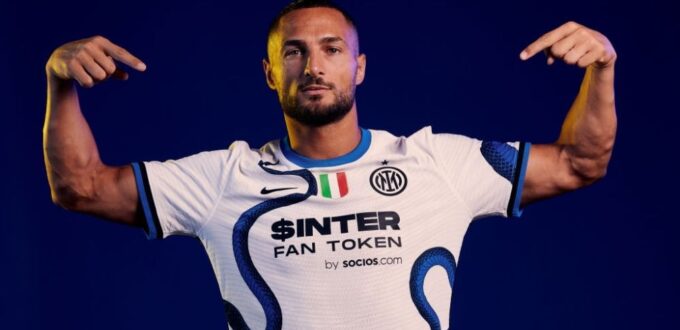- Legitimacy and fan engagement earmarked as keys for crypto sponsorship success
- Esports and sports fans leading the crypto conversion
- Unbundling sponsorship of women’s sports also leads to growth
Blockchain companies investing in sports sponsorship is projected to reach US$5 billion by 2026, according to a study by analytics firm Nielsen.
The 2022 global sports marketing report says that legitimacy and fan engagement will be the two key factors that contribute to the future success of cryptocurrency sponsorships.
Nilsen adds that, long term, it will be vital for organisations to properly vet sponsors and not let revenue impede due diligence.
For brands looking to sports for sponsorship opportunities as a way to engage with new audiences, the study states that long-term success will hinge on bridging the gap between awareness and conversion. According to the report, this is particularly relevant for brands in the cryptocurrency space, largely due to it being a new and unfamiliar industry that much of the general public has yet to formally enter into, despite its overall awareness rising.
Esports and sports fans are leading the crypto conversion, according to Nielsen. The study reveals that 52 per cent of esports fans and 39 per cent of sports fans say they are aware of crypto tokens, significantly higher than the general population. In addition, 24 per cent of sports fans also expressed an interest in non-fungible tokens (NFTs).
The report projects that cryptocurrency, blockchain and NFT sports sponsorship investment will increase by a massive 778 per cent compared to 2021. The next highest increase is 44 per cent for IT software and hardware. Retail, automotive and energy sponsorship investment is expected to rise by seven per cent, five per cent and four per cent, respectively.
Esports sponsorship is also showing no signs of slowing down, with competitive gaming serving as another avenue where brands are reaping the benefits of aligning their spend with opportunities to engage new fanbases, according to the study. The growth of mobile gaming has only spurred esports fandom, increasing reach and diversifying fan segments. The report states there were 2,254 publicly announced sponsorship deals in 2021, up from the 1,785 in 2020.
Nielsen also highlights that rising interest in women’s sports is shifting how global sports properties and federations approach sponsorship. It notes that unbundled sponsorship investment in women’s sports for Fifa, Uefa and World Rugby has increased by 146 per cent since 2018.
The value of athletes as influencers was highlighted by Nielsen. It revealed that 26 per cent of avid sports fans who look to social media for sports news say that athletes are a great way to connect with brands and sponsors.
This increased trust in athletes, according to the study, means brands are shifting their strategies away from ‘bigger is better’. Instead, they are focusing on influencers with fewer followers that make more personal connections and thus have a greater impact on driving behaviours such as trying a new product.
The report also took a look at the shift in media consumption. Notably, Nielsen highlighted how fan content creation is driving content consumption, and that rights holders are unbundling media and marketing rights.
The study also found that coverage and viewership for women’s sports will continue to rise. A particular standout is English soccer’s Women’ Super League (WSL), which from September to November 2021 saw its live UK audience for a match average 252,000 viewers, a whopping 542 per cent increase compared the full 2020/21 season.
For sports properties and media owners, Nielsen concluded that they should identify and maintain a dedicated first-party data strategy. The measurement specialist also concluded that sports properties must determine the right balance between short and long-term sales objective, embrace the power of athletes, as well as measure effectiveness of partnerships rather than just value.
Takeaways for sponsoring brands were to ensure marketing plans are holistic and include definitive influencer marketing strategies, tap into broadening sponsorship opportunities, as well as expand traditional sponsorship measurement.

No Comments Yet